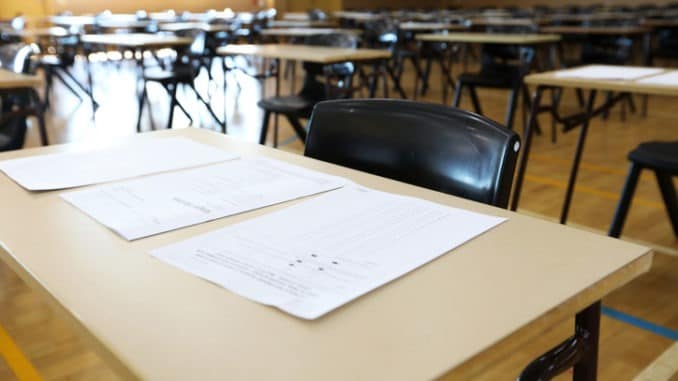
As reported by BBC news, extra measures to ‘boost fairness and support students’ will be used for next summer’s GCSE and A-level exams in England, ministers have announced
More generous grading, advance notice of exam topics and additional papers are promised by the Department for Education to make up for the disruption faced by students during the pandemic. Those who cannot sit exams due to self-isolation rules will still get a grade. Heads said it was ‘a reasonable package’ of measures for the situation.
The DfE says it has had ‘extensive engagement’ with exams watchdog Ofqual, exam boards and senior leaders across the education sector.
The measures mean:
- more generous grading than usual, in line with results from summer 2020, so that this year’s cohort is not disadvantaged
- students getting advance notice – at the end of January – of some topic areas covered in exams to focus revision
- exam aids – such as formula sheets – provided in some exams to cut down on the memorising required
- additional “backup” exams – to be held in July – to give students a second chance to sit a paper if they have to miss main exams or assessments due to illness or self-isolation
- and a new expert group, which will monitor variation in the impact of the pandemic on students across the country.
In extreme cases, where a student misses all their papers, a teacher-assessed grade will be given.
Those young people taking vocational and technical qualifications will also see adaptations to their exams to ensure fairness.
- Schooling ‘completely disrupted’ in some areas
- Mixed response as 2021 exams in Wales scrapped
- Scottish National 5 exams to be cancelled in 2021
- NI GCSE and A-level exams ‘will go ahead in 2021’
Education secretary Gavin Williamson said exams were the best way of measuring performance, and that it was “so important” they took place next summer.
“But this isn’t business as usual. I know students are facing unprecedented disruption to their learning.
“That’s why exams will be different next year, taking exceptional steps to ensure they are as fair as possible.”
Williamson later told the BBC that students have had an “incredibly difficult” year and he speaks “as a father” as well as education secretary.
He told BBC Breakfast: “I know as a father of a 16-year-old who is taking GCSEs this year, who’s been in a situation where she’s had to self-isolate and her friends have, that we have to take extra measures, have to take extra steps, to make sure there’s as much fairness for them.”
He also told Sky News he could “absolutely” give a cast-iron guarantee that exams will not be cancelled next year.
A-level and GCSE students in England were this year given grades estimated by their teachers, in a government u-turn, after exams were cancelled because of the pandemic.
It followed uproar after about 40% of A-level results were downgraded from students’ predicted grades by exams regulator Ofqual, which used an algorithm based on schools’ prior marks.
In primary schools, Year 6 national tests, known as Sats, will go ahead “to assist with pupils’ transition to secondary schools” and teacher assessment in English reading, writing and mathematics at Key Stage 1 will remain.
But the Key Stage 1 tests in reading and maths, and the grammar, punctuation, and spelling tests at Key Stage 1 and 2 will be cancelled for this academic year.
Geoff Barton, general secretary of the Association of School and College Leaders, said the measures were “a reasonable package” to mitigate the damaging impact of the pandemic and made exams “as fair as they can be in the circumstances”.
Barton said advanced notice of exam topics and exam aids would “help pupils know where to focus their energies in the time that remains” before exams take place.
“It is not perfect – nothing can be given the fact that learning has been so disrupted by coronavirus and that pupils have been affected to vastly different extents.
“But various options have been discussed exhaustively, and, frankly, schools and colleges just need a decision – the uncertainty has gone on for much too long.”
In Wales, A-levels and GCSE exams have been cancelled and Nationals in Scotland have also been cancelled, but Highers and Advanced Highers will be taken, two weeks later than usual.
In Northern Ireland, GCSEs and A-levels are going ahead, but will start a week later than usual.



Be the first to comment